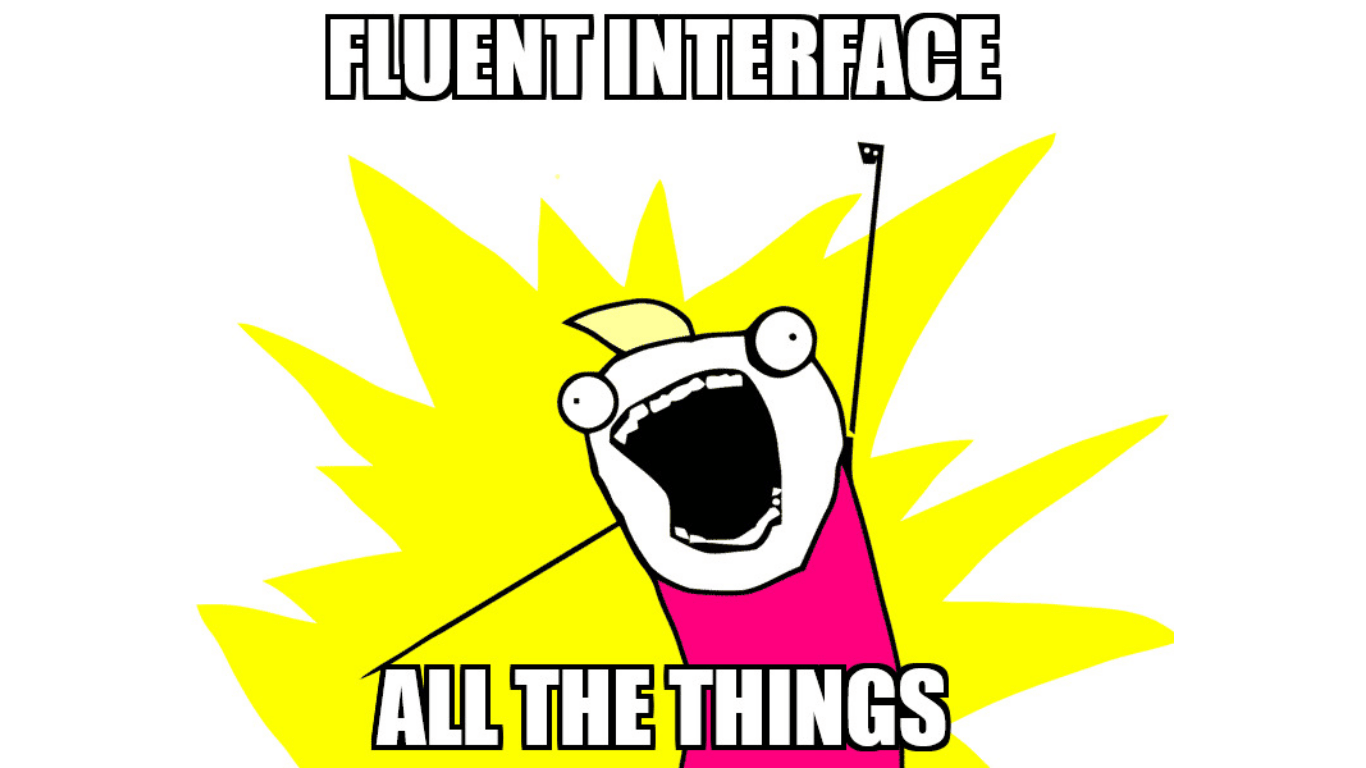
Last week Khalid Abuhakmeh wrote a very interesting blog post called Middleware Builder for ASP.NET Core which I highly recommend you read. In it, he attempts to write some extension methods to help with writing the Configure method in your ASP.NET Core Startup class with a fluent interface. I've taken his blog post to heart and gone on a mission to 'fluent all the things' in ASP.NET Core.
IApplicationBuilder and ILoggerFactory
This is an example of what your current Configure method might look like in a typical ASP.NET Core Startup class:
public void Configure(
IApplicationBuilder application,
IHostingEnvironment environment,
ILoggerFactory loggerFactory)
{
if (environment.IsDevelopment())
{
// Do stuff on your local machine.
loggerFactory
.AddConsole(...)
.AddDebug();
application.UseDeveloperExceptionPage();
}
else
{
// Do stuff on when running in your production environment.
loggerFactory.AddSerilog(...);
application.UseStatusCodePagesWithReExecute("/error/{0}/");
}
if (environment.IsStaging())
{
// Do stuff in the staging environment.
application.UseStagingSpecificMiddleware();
}
application
.UseStaticFiles()
.UseMvc();
}And this is the same code using the shorter, and prettier fluent interface style:
public void Configure(
IApplicationBuilder application,
IHostingEnvironment environment,
ILoggerFactory loggerFactory)
{
loggerfactory
.AddIfElse(
hostingEnvironment.IsDevelopment(),
x => x.AddConsole(...).AddDebug(),
x => x.AddSerilog(...));
application
.UseIfElse(
environment.IsDevelopment(),
x => x.UseDeveloperExceptionPage(),
x => x.UseStatusCodePagesWithReExecute("/error/{0}/"))
.UseIf(
environment.IsStaging(),
x => x.UseStagingSpecificMiddleware())
.UseStaticFiles()
.UseMvc();
}In the above code, you can see that I've added UseIf and UseIfElse extension methods to the IApplicationBuilder which lets us use the fluent interface. What you'll also notice is that ILoggerFactory also has AddIf and AddIfElse extension methods.
IConfigurationBuilder
I didn't just stop there, I added similar AddIf and AddIfElse extension methods for IConfigurationBuilder:
public Startup(IHostingEnvironment hostingEnvironment)
{
this.hostingEnvironment = hostingEnvironment;
var configurationBuilder = new ConfigurationBuilder()
.SetBasePath(hostingEnvironment.ContentRootPath)
.AddJsonFile("config.json")
.AddJsonFile($"config.{hostingEnvironment.EnvironmentName}.json", optional: true);
if (hostingEnvironment.IsDevelopment())
{
configurationBuilder.AddUserSecrets();
}
this.configuration = configurationBuilder
.AddEnvironmentVariables()
.AddApplicationInsightsSettings(developerMode: !hostingEnvironment.IsProduction())
.Build();
}
public Startup(IHostingEnvironment hostingEnvironment)
{
this.hostingEnvironment = hostingEnvironment;
this.configuration = new ConfigurationBuilder()
.SetBasePath(hostingEnvironment.ContentRootPath)
.AddJsonFile("config.json")
.AddJsonFile($"config.{hostingEnvironment.EnvironmentName}.json", optional: true)
.AddIf(
hostingEnvironment.IsDevelopment(),
x => x.AddUserSecrets())
.AddEnvironmentVariables()
.AddApplicationInsightsSettings(developerMode: !hostingEnvironment.IsProduction())
.Build();
}IServiceCollection
As if that wasn't enough I also did the same with IServiceCollection with the same AddIf and AddIfElse extension methods. In my experience, these would be used less often but I've added them for completeness.
Fluent me up!
You can get these extension methods and much more by installing the Boxed.AspNetCore NuGet package or create a project using the .NET Boxed project templates. Finally, if you are so inclined, you can also take a look at the code for these extension methods in the .NET Boxed Framework project.
Comment
Initializing...